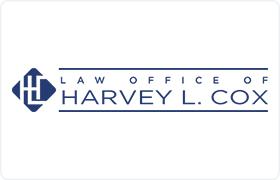 Meridian Wills & Probate Lawyers, Texas
Meridian Wills & Probate Lawyers, Texas
Sponsored Law Firm
-
 x
x

Click For More Info:
-
Law Office of Harvey L. Cox
1600 Lake Air Drive Suite 102 Waco, TX 76710» view mapEstate Law, Power of Attorney A New Perspective On Estate Planning
Our Family Estate & Business Planning focuses on protecting your assets from creditors, predators, lawsuits, judgments, liens, and greedy relatives.
800-795-7741
Includes: Estate Administration, Living Wills, Wills
Lawyers
1-2 of 2 matches
Business & Trade, Elder Law, Family Law, Wills, International Other
Family Law, Clean Air Practice, Wills, Dispute Resolution, Construction



 Harvey L. Cox Waco, TX
Harvey L. Cox Waco, TX Practice AreasExpertise
Practice AreasExpertise